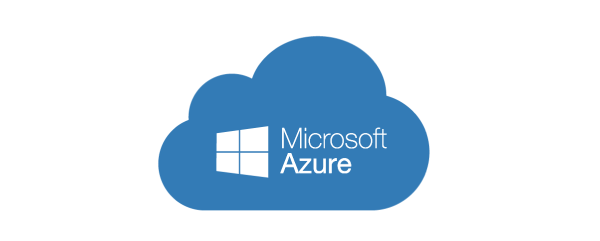 Introduction
Introduction
Cloud computing has evolved from being a supporting technology to the backbone of modern business innovation. From startups to Fortune 500 companies, organizations are relying on cloud platforms to drive scalability, reduce costs, and accelerate digital transformation. As enterprises look toward the future of cloud computing, one platform that continues to stand out is Microsoft Azure.
In this blog, we’ll explore where cloud computing is heading, why Azure Cloud Services are uniquely positioned for the future, and how businesses can leverage Azure to gain a competitive edge.
Understanding Cloud Computing
At its core, cloud computing means storing, managing, and processing data on remote servers instead of on local machines. It allows businesses to scale resources up or down instantly, ensuring efficiency and cost control. Unlike traditional IT setups, where hardware limitations often restrict growth, the cloud offers near-infinite scalability.
The Role of Cloud in Digital Transformation
Businesses across industries are undergoing digital transformation, and cloud computing is at the heart of it. From e-commerce platforms scaling during peak sales to hospitals handling sensitive patient data, cloud services have become essential. What’s more, the shift toward hybrid and multi-cloud environments is giving organizations the flexibility to balance workloads across different providers.
Why Azure Cloud Services?
Microsoft is a trusted name in technology, and its Azure Cloud Services are no exception. Ranked among the top three cloud solution providers globally, Azure has grown rapidly due to its enterprise-friendly solutions, robust infrastructure, and deep integration with Microsoft tools such as Office 365, Teams, and Dynamics 365.
Key Features of Azure Cloud
Azure offers several standout features:
- Scalability and Flexibility – Businesses can adjust resources instantly without investing in physical infrastructure.
- Security and Compliance – With advanced security protocols and adherence to global standards, Azure is designed for sensitive industries like finance and healthcare.
- Cost-Effectiveness – Pay-as-you-go pricing makes it attractive for both startups and enterprises.
- Microsoft Ecosystem Integration – Azure integrates seamlessly with widely used Microsoft products, making adoption smoother for existing customers.
Azure’s Global Infrastructure
Azure boasts one of the largest global footprints with data centers in over 60 regions. Better performance, quicker reaction times, and fewer delays are the results of this. Combined with edge computing, Azure ensures businesses can serve users closer to their location for maximum efficiency.
Security and Compliance with Azure
When businesses move to the cloud, security is frequently their top concern. Microsoft invests billions annually in cybersecurity. Azure comes with built-in firewalls, identity access management, and threat intelligence. Additionally, its compliance certifications (GDPR, HIPAA, ISO, and more) make it ideal for highly regulated industries.
Hybrid Cloud Capabilities
Azure’s hybrid cloud strategy is one of its key differentiators. With tools like Azure Arc and Azure Stack, companies can extend cloud capabilities to on-premise environments. For companies that want the best of both worlds—cloud agility and on-premises control—this flexibility is essential.
Artificial Intelligence and Machine Learning in Azure
Azure is an innovation hub that encompasses more than simply computing and storage. With Azure AI and Cognitive Services, businesses can implement AI-powered solutions like chatbots, speech recognition, and predictive analytics. From retail personalization to healthcare diagnostics, Azure AI is transforming industries.
Azure and Internet of Things (IoT)
The Azure IoT Hub and Azure Digital Twins allow businesses to connect devices, monitor operations, and create digital replicas of real-world environments. Imagine a factory where every machine is connected and monitored in real time—that’s the power Azure brings to IoT.
Azure for Developers
For developers, Azure offers a rich toolkit: APIs, SDKs, and DevOps integrations. With support for multiple programming languages and open-source frameworks, Azure makes application development and deployment seamless.
Azure and Data Analytics
Azure assists companies in refining data, which is the new oil. With Azure Synapse Analytics and Power BI, organizations can analyze massive datasets and create actionable insights. This enables smarter decision-making and better customer experiences.
The Future Trends of Azure Cloud
The future of Azure is exciting:
- Microsoft is making significant investments in quantum research, which could revolutionize computing power.
- Sustainability – Azure is committed to being carbon-negative by 2030, making it a green choice for eco-conscious businesses.
Why Businesses Prefer Azure Over Competitors
While AWS and Google Cloud are strong players, many businesses prefer Azure for its:
- Familiarity with Microsoft tools
- Strong hybrid cloud offerings
- Competitive pricing and enterprise support
Conclusion
The future of cloud computing is bright, and Microsoft Azure is leading the way. With unmatched security, global infrastructure, hybrid flexibility, and cutting-edge AI tools, Azure is more than just a cloud platform—it’s a digital transformation enabler. As businesses continue to evolve, Azure will remain a cornerstone of innovation, scalability, and sustainability.
FAQs
1. What makes Azure different from other cloud providers?
Azure is unique because of its extensive global infrastructure, smooth integration with Microsoft products, and hybrid cloud capabilities.
2. Is Azure secure for sensitive industries?
Yes, Azure meets global compliance standards like GDPR and HIPAA, making it ideal for industries like finance and healthcare.
3. Can small businesses afford Azure?
Absolutely. With its pay-as-you-go model, Azure allows startups and SMEs to scale without large upfront costs.
4. How does Azure support AI and machine learning?
Azure offers AI and ML services, such as Cognitive Services and Azure Machine Learning, enabling businesses to easily deploy intelligent solutions.
5. What is the future of Azure Cloud?
Azure is focusing on quantum computing, sustainability, and expanding hybrid capabilities, ensuring it stays ahead in the cloud market.
Smart ClouD Dubai




